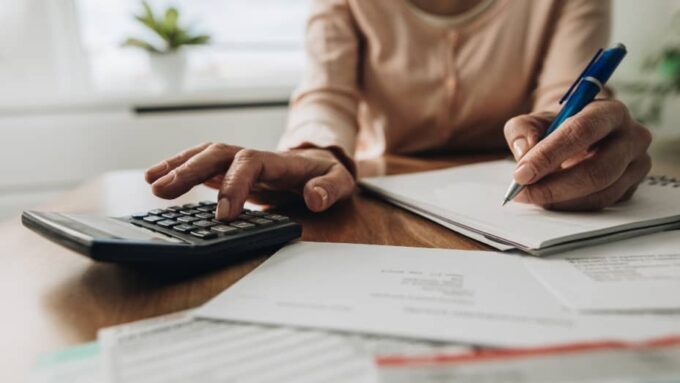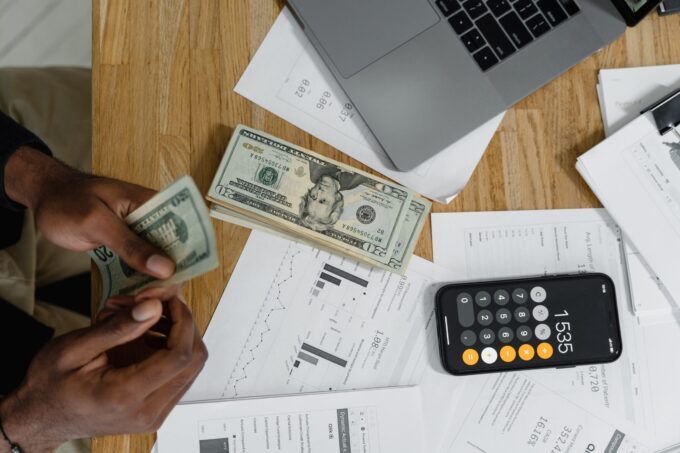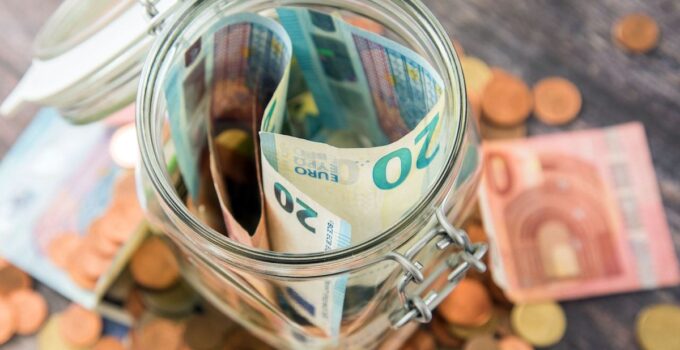Inflation refers to the change in prices across the entire economy, affecting the cost of goods and services. How does this affect your money, and how can you protect yourself from inflation? Follow these simple tips to protect your money.
Understand how inflation works

Source: cnbc.com
Inflation is the rate at which the general level of prices for goods and services is rising, and it reflects an increase in the cost of living. The purchasing power of a given sum of money decreases over time if there is sustained inflation. According to Forbes, $100 in 2024 is now worth $107.64 (adjusted for inflation).
This means that you would need more money to buy the same items in 2024 as you would have in 2024. To protect your money from inflation, it’s important to invest it in assets that will maintain or grow their value over time. Some examples include real estate, dividend stocks, and bonds. For peace of mind, you’ll want to keep an eye on your investment account to see the rate of return on your assets. Keep reading below for more tips on protecting your money.
Keep an eye on the overall economic situation and trends
When it comes to protecting your money from inflation, it’s important to keep an eye on the overall economic situation and trends. Inflation can be caused by several factors, such as increased demand for goods and services, higher costs for production, or increases in the money supply. If you can anticipate when and why inflation is occurring, you can take steps to protect your money by investing in assets that are likely to hold their value or grow in value over time. For example, investing in stocks or real estate may be a good option if you believe that the economy is growing.
Conversely, investing min bonds or savings accounts may be a better choice if you think that there is a chance of an economic downturn.
Diversify your holdings across a range of assets

Source: wealthmanagement.com
You’ll also want to diversify your holdings across a range of assets. This will help to minimize your risk and ensure that you don’t lose any money if the value of one type of asset falls. Additionally, spreading your money out will allow you to take advantage of different opportunities as they come up. For example, if you have all of your money in stocks and the stock market crashes, you could lose a lot of money. However, if you have some of your money in stocks and some in bonds, for example, then you won’t lose as much if the stock market takes a dive.
Look out for inflation indicators
Inflation can have a significant impact on one’s financial security, so it is important to be aware of the various factors that can contribute to it. Some of the key indicators to watch include changes in the Consumer Price Index (CPI), the Producer Price Index (PPI), and the Employment Cost Index (ECI). The CPI measures price changes for a representative “basket” of goods and services purchased by consumers. The PPI measures price changes for a basket of goods and services produced by manufacturers.
The ECI measures price changes for a basket of wages and benefits paid to employees. All three indices are published by the Bureau of Labor Statistics (BLS) monthly. If any of these indicators indicate that inflation is starting to creep up, it may be time to take action. One option is to adjust your investment portfolio so that it is less exposed to riskier investments, which may be more vulnerable to inflationary pressures. You may also want to consider putting some of your money into short-term savings vehicles such as certificates of deposit (CDs) or money market accounts, which offer relatively low rates but are less likely to lose value if prices start going up.
Have a plan in place in case of an economic downturn

Source: wealthmanagement.com
An economic downturn is a time when the economy experience slow gross domestic product (GDP) growth, high unemployment, and deflation. During this time, it is important to have a plan in place to protect your money from inflation. One way to do this is by investing in assets that have a lower risk of losing value during times of economic turmoil. These include government bonds, gold, and real estate. It is also important to keep some of your money in cash so that you can still take advantage of opportunities that may arise during difficult times.
Make sure you are using a stable currency
A stable currency means that its value is consistent over time. The U.S. dollar has been considered a stable currency for a long time, but there are other currencies that may not be as reliable. Look into the stability of the currency before investing in it.
Minimize your spending

Source: medphine.com
Another way to protect your money from inflation is to minimize your spending. If you don’t need something right now, don’t buy it. This might mean foregoing luxury items, but it could also mean sticking to cheaper alternatives when possible. If you find yourself frequently overspending on items that aren’t essential, then it might be time to reassess your priorities and figure out what you need to save for in order to have a stable financial future.
One of the worst things you can do when it comes to inflation is to spend money that you don’t have. When you’re not able to save money, you’ll quickly find yourself struggling to cover basic expenses like rent, groceries, and utilities. If you’re unable to afford these essentials, then it might be time to re-evaluate your budget and figure out how you can reduce your spending.
Inflation is a problem that we all face at some point in our lives. It can come as a surprise, but even the most solid of investments can start to lose their value over time if inflation is on the rise. Overall, these are the best ways to protect your money from inflation.







